Table of Contents
3 --- Letter from the Editors
4 --- Coffee with a Friend by A. Coffee Snobbe 6 --- Prof Dating Advice
8 --- The Myth of Billiards by R.C. 10 --- Coffeeshops and New Beginnings Playlist by L.J. 11 --- Inclusive Spaces by Kyla Willms 12 --- Doxa Drinks by Kyla Willms 13 --- the King of CMU (Abridged) by R.C. 13 --- Transcription of Rilke’s “Falling Stars” by Rosalyn Dao
14 --- CMU’s Silly Little Mayoral Candidate Debate by Kyla Willms
16 --- REES and CMU, with Mary Lobson
Front Cover Design by L.J.
Rear Cover Design by Katie Anderson
Illustration on page 3 by Kyla Willms
Illustrations on pages 5 and 9 by Mike Thiessen
Letter from the Editors
As we sit at our respective kitchen tables staring longingly at the new fallen snow melting into the grass, we turn to each other and sigh. “What an excellent start to another school year,” I reminisced. “Yes,” you responded in turn, “but now we must start anew, and we must consider the beginning of the final stretch to the end of the term.” Although the beginning of the school year is long parted, we are starting the beginning of a new season – winter and final papers.
Let us remember to not lose touch with each other as we navigate the library maze, our coffee comatose states, and the abhorrent number of layers needed to keep warm. Let this issue of the Doxa be a reminder to bask in the delight of new beginnings, the warmth of fresh coffee, and the joy of Doxa issues.
Our writers, Mike, and I will guide you through the importance of thinking critically about the election, about the consumption of vibes and warm drinks. Even our wise and fearless profs who have shared their knowledge on dating, will guide us all through this new season of life, as Virgil guided Dante through the afterlife.

Best of luck for all that is to come,
Katie Wilson and Mike Thiessen (pictured above) Doxa Co-EditorsCoffee with a Friend
by A. Coffee SnobbeWhen you are a student, your life revolves around finding places where you can feel productive and actually get work done. You will find your North lounges and your favourite nook in the library, but occasionally you also want a sense of exploration or being somewhere that your professors can’t look over your shoulder as you write a paper for them. And for those moments, may I present to you the humble coffee shop. Below in no particular order are some of my favourite places to sip some java and crank out a few thousand (ok.. maybe hundred) words.
Hildegard’s Bakery,
686
Portage Ave #100
Known for its expanse of sourdough based goods, and exceptional pizza, Hildegard’s Bakery will also give you a cup of coffee if you ask nicely. Hildegard’s has some appropriately sized tables if you need to spread out a little, exceptionally large windows that let in lovely amounts of light, and hanging plants everywhere that make you feel like you are in your own little corner of a jungle. This place is often hopping, so only try to study here if you thrive off of a constant buzz of noise and people coming in and out.
Joe Black Coffee and Bar, 2037 Portage Ave
Joe Black is one of the most accessible places for CMU students, as it is a 12 minute bike ride or half an hour long walk through the glorious Assiniboine Park. Parallel to Sergeant Sundae, this coffee shop offers a few cozy chairs by a roaring fire, a long bar table to view the hustle of Portage life, and an impressive spread of drinks, homemade soup and sandwich collections, and a case full of tasty squares. Often occupied by pairs of older folks, this study space is big enough that you can usually find a spot to hunker down in and not get distracted.
Thom Bargen Coffee Roasters, 64 Sherbrooke Street
Probably one of the cutest coffee shops on this list, Thom Bargen on Sherbrooke is the perfect place for people who care deeply about the quality of their coffee. Close to Wolseley (which lends itself to a lovely walk if you feel like taking a stretch), this coffee shop has knowledgeable baristas, many tiny tables for studying, and more Blundstones walking through the door than you can shake a stick at.
High Tea Bakery, 2103 Portage Ave
While not what I would actually technically consider a coffee shop, I do believe you can get iced coffee here at select times (and it’s within walking distance to CMU!). Known more for their vast collection of tea varieties, and beautiful artistry of imperial cookies, you can feel like you are sitting down for midafternoon tea while reading in their quaint upstairs section of the store for hours for nothing more than the cost of an Earl Grey shortbread. With bright window light and low foot traffic, I have curled up here for hours to feel like I am writing in the English countryside.
MAKE Coffee + Stuff,
751
Corydon Ave
If you ever want to feel like you are a struggling genius, scraping to make a living with other creative souls, MAKE Coffee + Stuff is the place for you. Built as a long galley style layout with handcrafted looking tables, you will be shushed into submission by the other folks who are working hard out of their coffee shop offices, as you pay for 2 more hours to stay at your spot with every coffee that you purchase. The sheer force of work ethic and creativity bubbling around you will have to rub off, right?
Folio Café, 500 Shaftesbury Blvd
The central heartbeat of CMU campus, we can’t forget the Folio Café on our list of study spots. With friendly staff, a tasty selection of drinks and snacks, and natural light that is unparalleled to anywhere in the city, Folio can really hit the spot on those days when you don’t have the brain space to venture very far. Be warned though, you are undoubtedly going to see at least 1-6 people that you know and/or are related to, so the possibility of being sidetracked from your mission of homework is high.
Little Sister Coffee Maker, 470 River Ave A
Don your favourite thrifted pants and flannel layered on top of a screen printed t-shirt, and you will find yourself amongst friends at Little Sister on River. Little Sister is often a bumpin’ place, so expect to enjoy some chatter, or make sure that you have your headphones along as you sit at their cozy bar table by the window watching the world go by from ground level. Little Sister gets big props for having the most magical salted caramel latte I’ve ever tasted.
Daily Grind Coffee, 3043 Portage Ave
If you’ve ever wanted to have enough caffeine and whipped cream to fit into a mug that is bigger than your face, the Daily Grind is what you’ve always been craving. The Daily Grind is an ideal place to study with a group of friends, as it is a low light setting and has huge squishy booths that will block your inevitable giggles from the other patrons around you. You may want to plan out your visit though, parking can be cutthroat.
Scout: Coffee + Tea, 859 Portage Ave
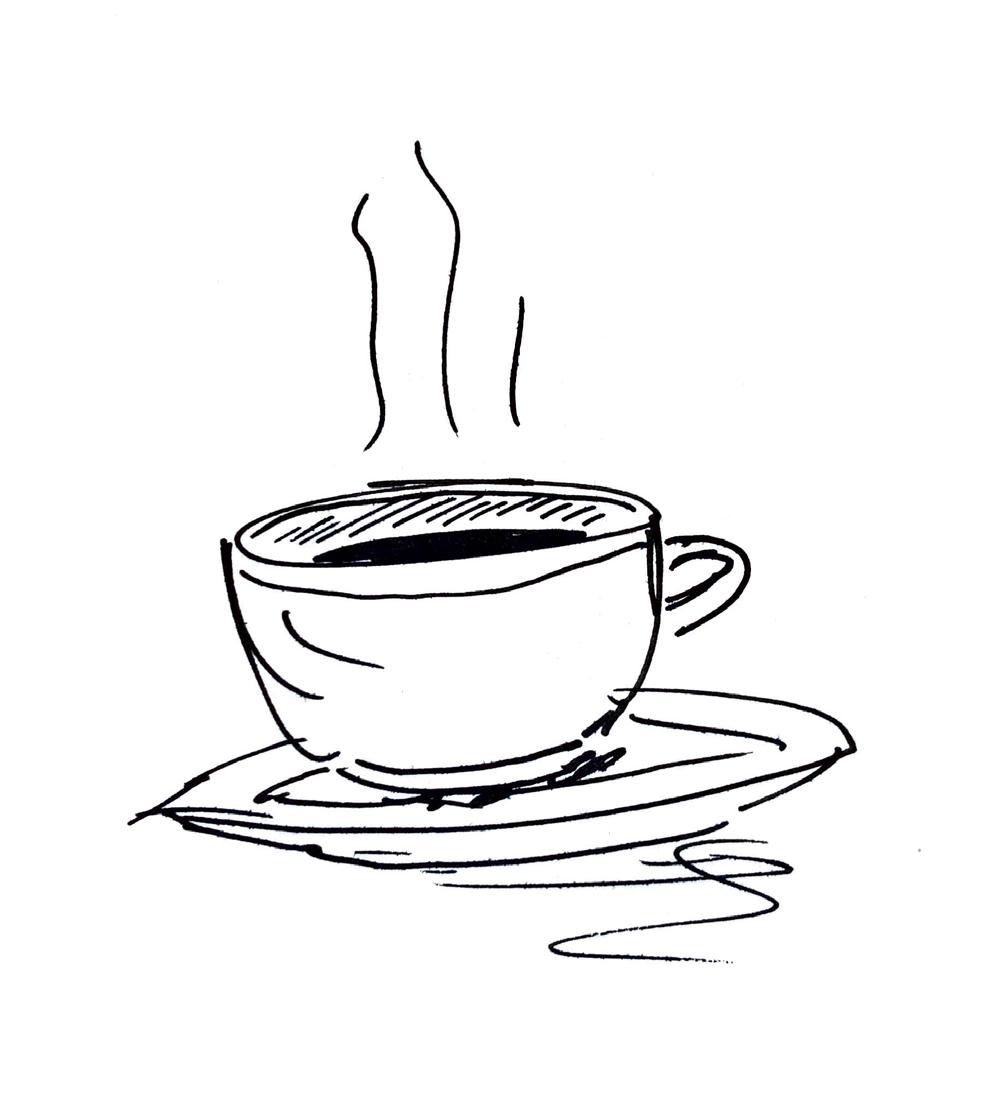
To be fair, I’ve never sat inside Scout to study, but I have deep appreciation for them as a coffee shop and I think more people need to appreciate their good work. Known as “Winnipeg’s Only Play Café”, Scout often hosts hordes of children in Elsa costumes who are playing energetically in the corner. But when you can find a child-free time, Scout has an excellent variety of tea and coffee flavours, a bright cheerful atmosphere, and a tantalizing smell of mini donuts at all times.
Timothy’s World Coffee, 2090 Corydon Ave
Technically I think that all of the coffee on this list could be classified as “World Coffee”, but I digress. Timothy’s on Corydon is a place that I passed on for years in the search of hipper coffee joints, but after realizing it was a quick 6 minute bike ride away, or 4 minute drive, I figured I had to try it at least once. It had a great selection of tables to choose from, the most joyful barista I’ve ever met (shoutout to Carlos), and some pretty decent drink selections, even if it still feels like a big chain. Would go back again.
Prof Dating Advice <3
You trust your dear professors to teach you everything you need to know in order to succeed academically, but can you trust them to help your sad and lonely heart to succeed romantically? We’ve asked several of CMU’s profs to share their best advice on going on a first date. <3 <3 <3
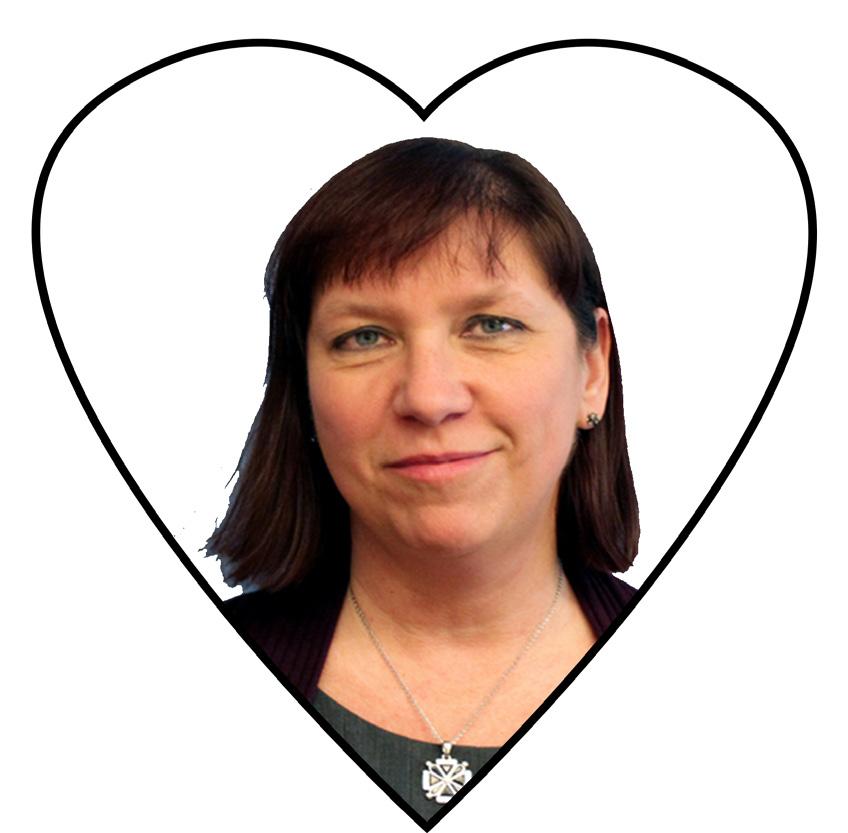


“Know the name of the person…know the name, that’s usually helpful, and don’t make it too complicated.” - David Balzer <3
“Just be yourself, and if that spoils the date, then so be it.” - Sheila Klassen-Wiebe <3
“Be cheerful and happy, I don’t know. I can’t remember my first date.” - Sue Sorensen <3
“Be honest, I’d say that’s probably number one. Split the bill.” - Neil Weisensel <3
“Get a bunch of people together and play hide and seek on campus.” - Ashley Prest <3
“1. Have a list of essentials (example: “I don’t want to be with an AH”) and non-essentials (example: “I want my date to have straight teeth”). If your essentials list gets more hits, you are going in the right direction.
2. Get invited to, at least, one of your date’s holiday family gatherings. Awkward, right? Yes, certainly, but also a good opportunity to make notes on how situations are handled.
3. If you are going on more than one date in Winnipeg, make sure you go on a date in early February. You want to know how your date does not only in springtime and harvest, but also in the thick of winter when the sun goes down early, and everyone’s serotonin levels are not optimal.” - John Boopalan <3

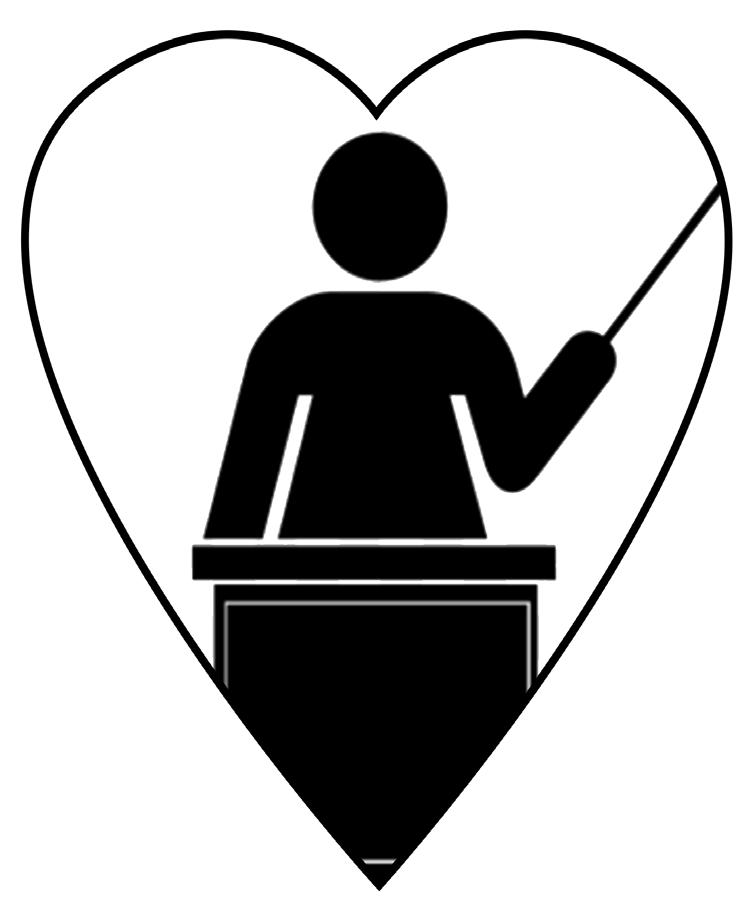
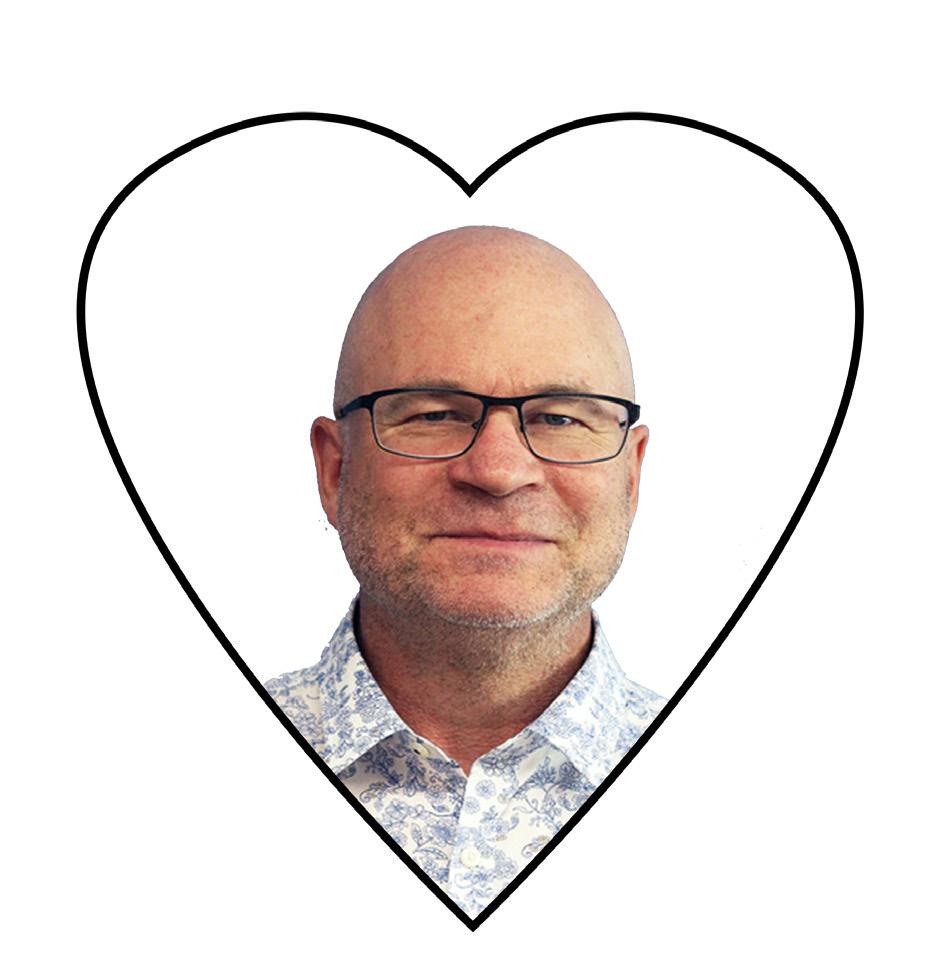
The Myth of Billiards
by R.C. To N.L.V.WHOOOOWEEEEE! FALL 2022, CMU FULL SWING BABY! Somehow better than I ever knew it and I was hoping to know it well! There is a barbecue, and that pork is slowwww cooked. Outside there’s laughter, joy and the almost unstoppable spike ball games that raise the rhetorical questions Is spike ball the semi-official sport of CMU? Is the goose the semi-official animal?” Yesss,yesss. All returning students are saying hello again and the first years are in for a wild ride.
The next week I meet a man, and in an hour, we are friends, kindred spirits that drifted randomly, aimlessly, like forgotten raft boats atop unforgiving waves until we met. I ask him about a billiard table, and he tells me second floor, south entrance to the resident building. I go up and try the door. Locked. I try the key. Locked. I look at my feet, and then back.
The next day I went up to the door and pulled. It clicked open a crack. I stood there. An ant marched past alone.
Some people came back this year and some left. Graduates obviously graduated but some strange folk didn’t return. I had a buddy that exchanged books of poets we liked. I asked him when he wanted the book back and he said, “this way you don’t have to buy one; and you can get a discussion which you cannot buy.” I told him one day, “You’re a socialist wet dream.” I could talk to him frank, unlike I talk to almost all. Now he’s somewhere else. I never got to say goodbye - he’s not dead, but still….
When I came in, I felt turned around the moment I stepped foot inside the doorway. It felt like a home to a man who isn’t horrified of change. A smell almost appetizing came from the cafeteria I’d never been. I turned away and found a stairwell. It smelled of shampooed carpets. I got to a floor of dorms and looked upon the hallway of rooms that seemed to stretch forever. I didn’t see the end. Doorways towered over me. I mean, these were men, women, and others that had keys, addresses, mail, doorknobs, door mats, and hinges. These were people living alone or with strangers. Beyond the door I could only imagine the tantalizing horrors they must face. Job interviews, tax forms, health numbers, driver’s licenses, daytime television, medication bottles, antacid tablets, laxatives or Imodium; obligations for lunches, key-coin dishes, bank accounts and or a TFSA or stocks or whatever the hell a “government bond” is; ramen cups, stashed mickies, tea in the pot, on the zigzag or some kind of seltzer substitute; instant espresso or red bull for breakfasts or “what the hell, suns up anyway,” mistakes that can chisel false epitaphs into sleep hungered bodies; procrastinated coffee dates and rain check drink evenings; wants
of social life, the need for individualism, buds lingering too long, the S.O.’s cohabiting or gone away bringing the cold presents of loneliness under the bedsheet; preferences of hand soap and laundry scents--that is, only if they have washers, dryers, bathrooms, sinks, hotplates, heat, windows, beds--how is one to know besides accidently committing second degree B & E to relieve horrors that cluster your mind like a clogged drain—would they even have “Draño” or snakes or the old vinegar and baking soda? Vinegar would help if they have tiles or windows, but do they?
I opened a couple wrong doors on the way. Inside what looked what might be a dorm too. If it was a dorm, they do not own beds but only desk nooks. My god, who are these people?
I gingerly opened a door to the left and saw the smooth green altar. I gathered the balls and a stick and set the triangle. I aimed and with the glossy staff held up by my first and second knuckle. I leaned over and with a crack of thunder, I saw the balls disperse in narrow paths of chaos. I had a cup of tea with me, it was just the bag in there, so I didn’t know if it was a prop or not. I still picked it up out of fear when a creak or voice came in the distance.

I aimed the sphere toward another, instead, it moved in a square around number 14, in a faux taunt. A man barged in and stared at me seemingly enraged by my presence. I wondered if he was an 18-year-old adult or a 22-year-old kid. He wasn’t a commuter or else why would he be here? He reminds me of a pug, a stoic “don’t fuck with me” look until they open their mouth. I hit the cue without progress, instead, edging the 8 ball to a pocket for it to give me the ol’ game over. I wondered what my buddy in Toronto dorms was doing so far away from where we were raised. I wondered what “home” meant to him.
The man left without word or explanation, and I sunk the 8 ball prematurely, ending my game. I got the triangle and set the break for the next soul to play. As I left, I felt I was making a mistake myself: kid or man. I shrugged and stretched my chest to the sun for a short moment before hanging my head over my toes and walking away smiling.
STICK SEASON – NOAH KAHAN
It’s important to grieve your past and take the time to thoughtfully consider why some things got left behind and are no longer present in your life, and why that’s okay. This song encompasses all those bittersweet feelings and sparks the acknowledgement needed to move on to better things; new beginnings.
FIRST DAY OF MY LIFE – BRIGHT EYES
This song expresses the transformative and metamorphic power of relationships, and not just romantic ones. It’s pretty amazing to look back and reflect on how the people you know have changed your life, and also to look forward and imagine the endless possibilities in meeting someone new.
BEES – THE BALLROOM THEIVES
POV: you’re trying really hard to put that thing behind you and live the life you dream about and know is attainable, if only. You have people who support you and help guide you to this place, and it’s a struggle every day, but you know you’ll beat it.
GOIN ON – JOSIAH AND THE BONNEVILLES
Josiah Lemming is an artist, but not very many people know that. He’s been releasing music since 2016, but hasn’t had much luck within the industry. A few months ago he decided to quit his two jobs, which he was working just to get by, and make music full time. He’s an amazing artist and a genuine person and I really recommend you listen to all his stuff because it’s all absolutely fantastic.
NEW SOUL – YAEL NAIM
This song does a good job of uniquely capturing some aspects of the human condition such as making mistakes, learning, starting over, and trying again. It’s all of our first times on this Earth, and wherever you are in life I find it is always important to have an open mind about things and walk the world with humility.
COFFEE CUP (CHILL EDIT) – ANTHONY LAZARO
If you’ve been daydreaming about falling in love in a coffee shop, or you’re in a coffee shop and are just looking for something to listen to while you study, or you’re not in a coffee shop but wish you were in a coffee shop, then this one’s for you my friend.

JOYRIDE – MELCHOR
This song is about letting go, accepting change, saying goodbye to what was, and welcoming new beginnings. Often times, we don’t have a choice in what life throws at us. However, the freedom to choose how we react and how we think can never be taken away from us.
COFFEE – JACK STAUBER’S MICROPOP
I mean, the song’s about coffee… soooooo.
I also just generally think this song does a good job at capturing what my brain feels like on caffeine. It certainly is a roller coaster and a half.
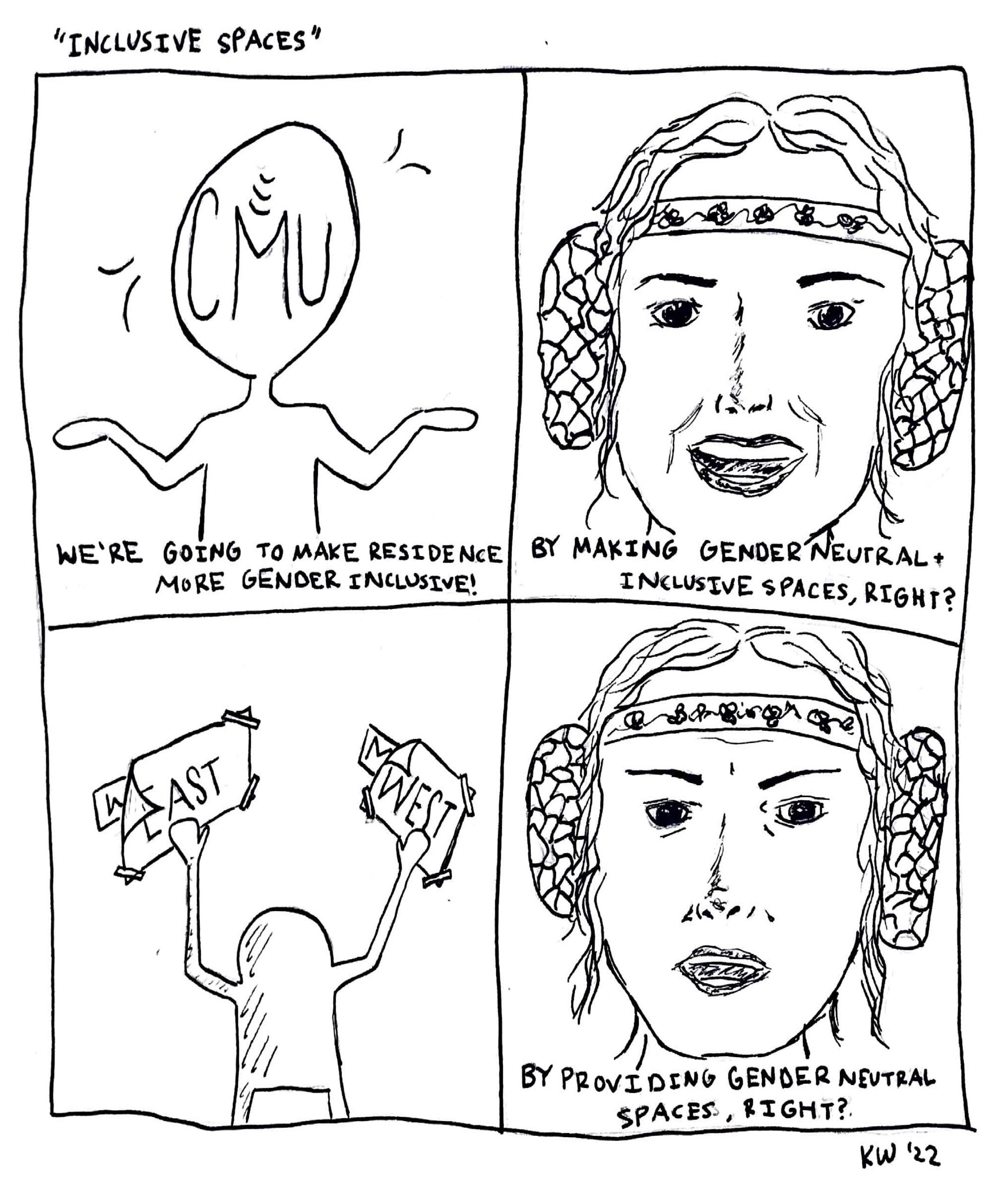

The King of CMU (Abridged)
by R.C.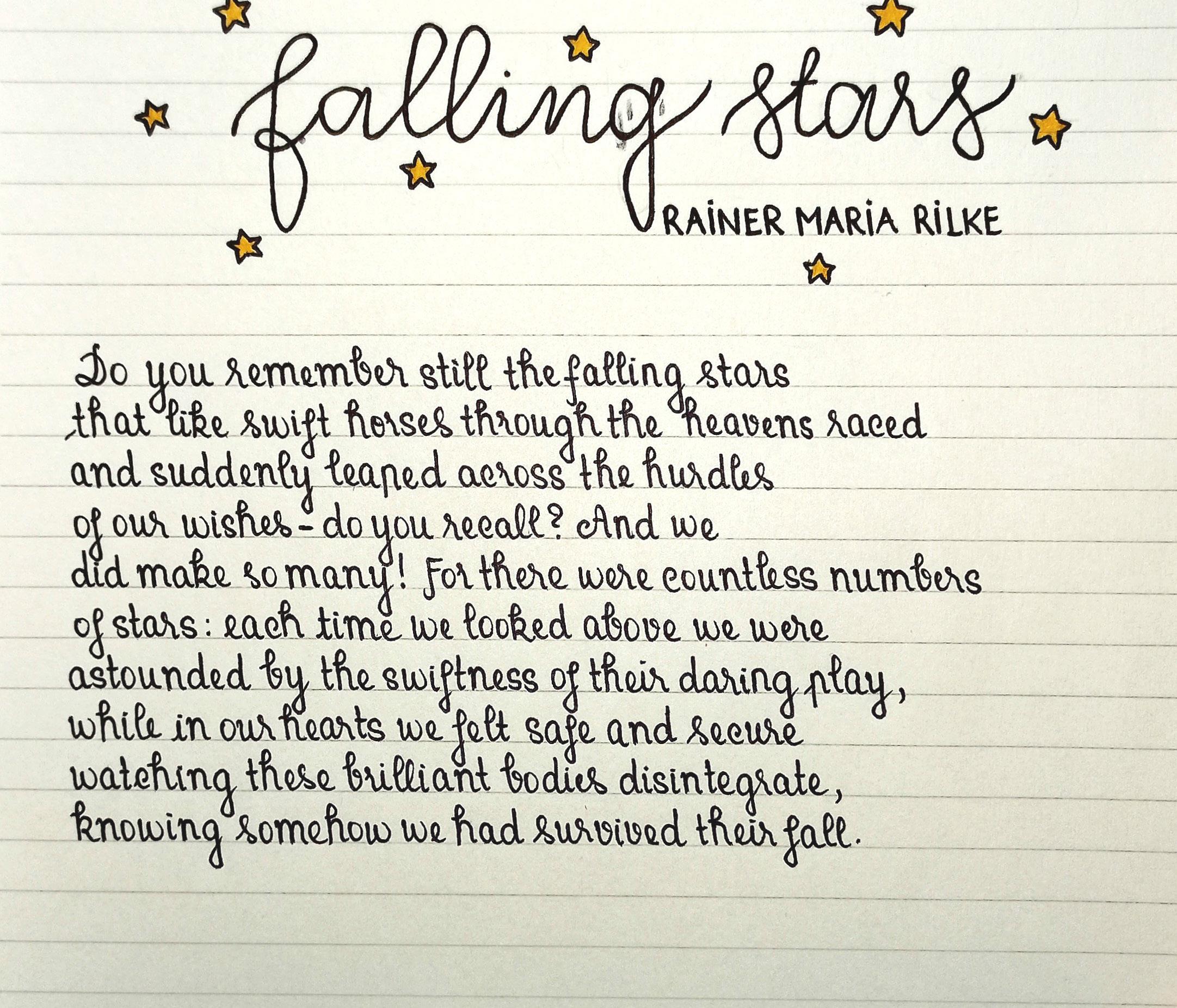
2022/09/06 around 2:00.
He flew his arms down with a gaze beyond, almost to the horizon. “Undefeated!” he almost howled, “and you want to fight me? I’m the king of the jungle!” He smiled big. “I’m Mufasa!” I couldn’t deny his declaration.
Over a bouncy castle fighting ring, the Champion and I stood on pedal stools with big inflatable staffs. We both readied and started. I noticed I could’ve jabbed him in the groin but that was a cheap move against a king. It became a sort of push of war. After a bit of a wrestle, my balance weakened and I fell onto my back, feet up to the heavens, continuing his reign. He stumbled off the stool and asked, “You good?” smiling because he knew my laugh said “Yes.” We got up, shook hands, and greeted each other for the first time.
CMU’s Silly Little Mayoral Candidate Debate
by Kyla WillmsCanadian Mennonite University held a mayoral candidate debate at Thursday forum on October 13, 2022. With the misspoken “sissy,” our Stuco president saying, “And now, Shaun Loney” to which Loney responded, “Thanks, Shaun Loney,” and the final kicker, when our President Cheryl Pauls was called Katherine, it was definitely an event to remember. There was fun irony to hold a political debate in a cultural space (Mennonite/Anabaptist) that is so often associated with being apolitical. It was unclear how the participants saw the space or if they knew much of CMU at all.
I found it odd to see these four men; Rick Shone, Robert Falcon-Oullette, Shaun Loney, and Scott Gillingham in person, as I have been following the mayoral election all summer via Twitter. It was difficult at first to distinguish three of the candidates on the panel as they were white men with similar builds and shared a lack of hair. Just so everyone knows, CMU’s panel was unlike CBC’s and invited pretty much all the candidates to the table. From what I know, CMU isn’t predisposed to male candidates. Some notables who didn’t join us that afternoon were Rana Boukhari, Glen Murray, Kevin Klein, and Jenny Motkaluk (if you can really call her a candidate).
Nicholas Pauls-Harder moderated the event, providing questions he assumed the student body would be interested in, such as climate change, housing affordability, transportation, and policing and crime. Pauls-Harder also began the event by acknowledging that the city’s government and mayoral position is a direct arm of settler-colonial institutions. It was fun to scan the politicians to see their reactions to such remarks, from my memory Gillingham and Shone looked the most discomforted, with raised eyebrows and the shifting of position. However, I’m no expert on body language. Now, I’ll go through generally how each candidate responded to these prompts.
Rick Shone was the first on the panel, who stands out to me as the candidate who had his bike stolen hours after holding a press conference on bike theft, where he rode in on the exact bike that got stolen. IF you want to be part of a very fringe conspiracy theory (that some may call offensive, but I think it’s just funny) you can join me in believing that Shone got his bike “stolen” as a publicity stunt and to emphasize his platform on bike theft.
From my memory, Shone is really passionate about bikes and compost in terms of climate change. He is also very concerned about approaching the houselessness issue in Winnipeg by building tiny homes on the city’s property and providing jobs. Shone also really wanted to let us know that he knows a lot of very nice police officers who really care about Winnipeg (a not-sosubtle response to ACAB).
Next was Robert Falcon-Oullette, the one who accidentally said “sissy.” Falcon-Oullette emphasized his support for the 10YearPlantoEndHomelessnessinWinnipegcreated by End Homelessness Winnipeg in 2014 to combat houselessness in the city. To address transportation in terms of climate change, safety, and affordability he advocated for $1 bus tickets, light rail transit, and safe injection sites. Falcon-Oullette really stressed the interconnection of the issues raised by Pauls-Harder and that he would want to address them together with lots of smaller solutions rather than one big solution.
Then we had Shaun Loney, who really wanted to make sure we knew who he was, even after being introduced. Unfortunately, Loney’s campaign slogan, “Only Loney,” is so cringy for me I am just biased against him and his ideas. Following him on Twitter and constantly seeing “Only Loney,” all I think of is “only lonely,” and then it just gives me bad vibes. Loney is an economic guy, as he made clear to us by getting really technical with numbers (and losing the crowd’s attention in the process). To address climate change and transit Loney wants heat pumps and transit so good cars will be undesirable. Also, he is an avid supporter of land trusts – if you want to know more about what that is, ask Prof. James Magnus-Johnston. Loney is also a bike lover and wants to spend $20 million on bike lanes. He also emphasized safety on transit and wants to reduce police workload by 10% so they can get to the issues that matter.
And finally, we had Scott Gillingham – a CMU alumnus, as he kept reminding us. If you’ve driven around in Charleswood you may have noticed the amount of Gillingham signs up. For me, that was enough of a sign to not be very interested in his campaign. Gillingham wants to electrify the bus system, add solar and geothermal solutions to buildings, and wants to increase affordable housing grants to developers. Additionally, Gillingham wants to develop our trade roads, which he says will increase trade capacity and then create more jobs. He also shared with the group that he used to sit as chairman of the police board and wants to enforce bias training for police officers while also relying on non-profits for community-based safety initiatives.
Overall, the candidates were interesting and uninteresting. I stand-by my assumption that politicians really don’t act like real people. It was my first time at any type of debate, and I found the whole thing hilarious. The candidates’ final remarks went:
Shaun – Climate change is an amazing economic opportunity.
Scott – You young people should vote with your values.
Rick – You young people should vote with criticalvalues.
Robert – Values are great and all, but choose a different voice, maybe one that represents those who need it most in the city.
 Imagesource:MayorScottGillingham’sInstagramaccount
Imagesource:MayorScottGillingham’sInstagramaccount
REES and CMU, with Mary Lobson
Earlier this fall, Doxa co-editor Mike Thiessen sat down with Mary Lobson, the founder and CEO of REES, an online platform for reporting sexual violence on campus, to discuss the work REES is doing, and how REES functions specifically with Canadian Mennonite University. Thisinterviewhasbeeneditedforclarity.
MIKE THIESSEN: Could you give a little background about what is REES is and what it does?
MARY LOBSON: In 2019, I knew that I wanted to create an online reporting platform specifically to address sexual violence and to reduce barriers to reporting, because we know that it’s prevalent on campuses. About 70% of students witness or experience some type of unwanted sexualized behaviour on campus, yet we know that very few people actually come forward and report. So, I wanted to do something different. I reached out to all the post-secondary institutions in Manitoba to see whether they would be interested in using a reporting platform on their campus. CMU was one of the schools that showed definite interest. We then followed where we were able to get some money and do a pilot for all the campuses across the province, but CMU has been involved right from the very beginning.
As for an overview of the platform, there are multiple reporting options; there’s an anonymous report which provides anonymous data that goes back to CMU so that they can have ideas about patterns, trends, where things might be happening, time of year, those kinds of things. Then there is a Connect to My Campus feature which reports directly to Student Life. If someone is looking for supports and resources, if they need academic accommodation, whatever systems they might need, they can send the report directly to them. We are also partnered with Winnipeg Police Service, so that if a student wanted to report directly to the police, they could.
One of the important things for us is that the platform is trauma-informed and survivorcentred. One of the aspects of that is the ability of a student, staff member, or employee to create
one record and choose from any or all of those options. For someone that has experienced harm, their memory may come back to them at different times. They might remember more, they might forget something and remember a few weeks later, and they might not be sure about when they want to come forward or what they want that process to be. They can come create a record. They can do nothing with it, or they can save it and decide what to do with it down the road. It really gives them the flexibility to be able to use the platform in the way that they want. We also have a feature called Repeat Perpetrator Identification that enables someone to identify the person that harmed them, and if someone else identifies that same person it will trigger a match and CMU would be notified. Those are the reporting options.
MT: As for getting it started, in terms of motivation, was it simply the fact that there was really nothing in Manitoba prior to this?
ML: Nothing in Canada, not just Manitoba. There was really nothing available for online reporting across the country. There is an initiative called “Courage to Act” which is a national initiative looking specifically at the issue of campus sexual violence. Over the years there have been calls for reporting pathways, calls for anonymous reporting, students advocating for more clear reporting options coupled with the desire to have more data. Because there weren’t clear reporting pathways, there weren’t metrics, there weren’t ways of gathering that data. REES uses technology to enhance reporting options for people, but also is also able to gather that data that institutions can then use to inform change on their campus.
MT: To what extent are you hoping to expand beyond what you have already done?
ML: We are now in seven provinces across the country, and we have several partner campuses. We also expanded into music festivals, and we recently partnered with Football Manitoba. So we’re certainly broadening who we do it for, but the core of what we’re doing is staying the same – it’s online reporting specifically for harms against persons, whether that’s sexual violence, discrimination, bullying, or anything else like that.
The end goal is to not need REES at all, to not even need to exist anymore because this is no longer an issue. But there’s a long pathway to get us there. So the short term would be having safe spaces for people to be able to come forward to share their information, to record their story, and then have options around how they want to come forward. We also have a space on the platform for supports and resources. Someone may not want to report, but they may want to find out what resources are available in their community. It’s making sure that people are feeling supported and heard, and having spaces to access that information. On the institution’s side, it’s to provide information, insights, data, and for them to create safer spaces and safe campuses.
MT: How have you seen REES affecting sexual violence on campuses, and then going into other avenues like music festivals and sport teams? Do you feel that you have seen REES impacting these areas directly?
ML: We have been on campuses two full years. This is out first year not in Covid, so in-person was really limited during that time – no events, that kind of thing, so it will be interesting this year to see what changes there might be from those two years prior years just by virtue of being in person. One of the things that strikes me is of all the reporting features, anonymous reporting has been the most utilized. When we think of a change that we have made, we have made a new pathway that we didn’t have prior for people to be able to come forward. To me
that feels like a concrete, tangible change that we’ve seen. We’ve seen that students using the platform are predominantly reaching out for support. We are hearing anecdotally back from our campus partners that REES created a bridge for them. Survivors didn’t have to go knock on the door and share their story; they were able to reach out with an email, share their story and the person on other end – the sexual violence response staff or the support person on the campus end – already knew who was coming and, to some degree, knew what the issue was or what had happened. The ability to be a conduit for people to come forward, that’s important for us as well. These are some early things that we have seen.
MT: Thinking specifically about CMU, how do you think that REES should be used at a smaller school? For example, how would you use REES differently here than you would at U of M or another larger school that you’re partnered with?
ML: I think that is different than a big school. One of the opportunities that REES provides is anonymous reporting because in a small community people know one another both as students, faculty, and staff, but also as members of a faith community. They may have relationships outside of here as well or be from smaller communities where there’s a lot of close affiliation, so the ability to have an anonymous reporting pathway can be really beneficial because then that takes away the barrier of who’s going to see this, who’s going to know, and who’s connected to who. The ability to come forward without identifying oneself really helps to reduce barriers, especially in a small school.
We are partnered with a number of faithbased institutions. This is a broad sweeping statement, but historically- or generally-faith-based institutions can want not to step up and address the issue or acknowledge that this is happening in the community. It can be more difficult or challenging to come forward in a smaller environment connected by faith because of relationships and, potentially, the culture of that faith community. We have campus partners that are faith-based schools
that have very clear code of conduct related to relationships and behaviour that is permitted and not permitted. CMU is not as restrictive as some other environments, but at a faith-based school like that when you are not even able to hold hands with someone, the barrier to come forward to talk about sexual assault – behaviour that you know you are going to be judged for from a faith-based perspective – is going to be a lot higher.
MT: As you said, CMU is not as restrictive as some schools, but regardless, with any faith-based school, if there is a purity culture influencing anything at all then there could be the shame in coming forward –even separately from the whole issue of having been assaulted.
ML: Yes, the shame of that and what is the impact for me in my community. Not about my school, not about my academics, but within my community. What are the impacts of that going to be? A number of our faith-based schools didn’t have something called an immunity clause, which is a clause that states that if you violate a code of conduct at school related to behaviour, for example, you won’t be punished, sanctioned, or disciplined in any way. It’s a way of reducing barriers to come forward because then people at least know that if they did breach a contract or agreement that they have with the school, they won’t be disciplined because of it. We have been able to move that along in some of our faith-based schools so that they’ve adopted an immunity clause. That’s been important as well, to see where we can affect change in smaller schools. This doesn’t usually come out in interviews, but I have a Bachelor of Arts in religious studies, so I have studied a lot of contemporary Christian thought, and I appreciate the nuanced differences in a faith-based institution. Like I said, some institutions or some faith communities are really open. One of our partners is Columbia Bible College and they had a really serious issue a few years ago and did some conferences and organizing around church, too. There’s a real contrast in faith communities around the level of willingness to acknowledge the issue and talk about it openly. I
appreciate that CMU, for us, has been a really great partner, a really engaged partner.
MT: Do you have any final thoughts?
ML: When I talk about us being trauma-informed, survivor-centered, privacy was also really important, privacy and data security both for users and for institutions. We spent a lot of time thinking about the ways student survivors need to be protected in how they share their information. The records are encrypted, we don’t use any tracking or third-party analytics, and we feel those are really important. It was something from a design perspective that was really important to us.
MT: CMU doesn’t currently have a student representative for REES. How would one go about getting involved?
ML: We typically put out applications every spring. The youth advisory board goes from July 1st – June 30th of every school year, so we do recruitment in the spring. Having said that, there are also other opportunities. We just had a really good event at the Goodwill a few weeks ago, it was lots of fun. There are opportunities for folks to become involved with us; we have an email address [hello@reescommunity.com] and if someone is wanting to get involved, we were at Summer of Sound in June last year. We had folks there handing out buttons, so there’s opportunities for folks to volunteer if that’s something they’re interested in doing. Someone might have a particular passion or idea of how they want to be involved, like sometimes we need a photographer at things or thinking about the individual skills or however they’d like to engage. We also would do student practicums. That might be another opportunity if a student was doing something with practicum opportunities. We would be interested in having a conversation there. If someone is wanting to become involved, reach out and we’ll see what opportunities we can find.
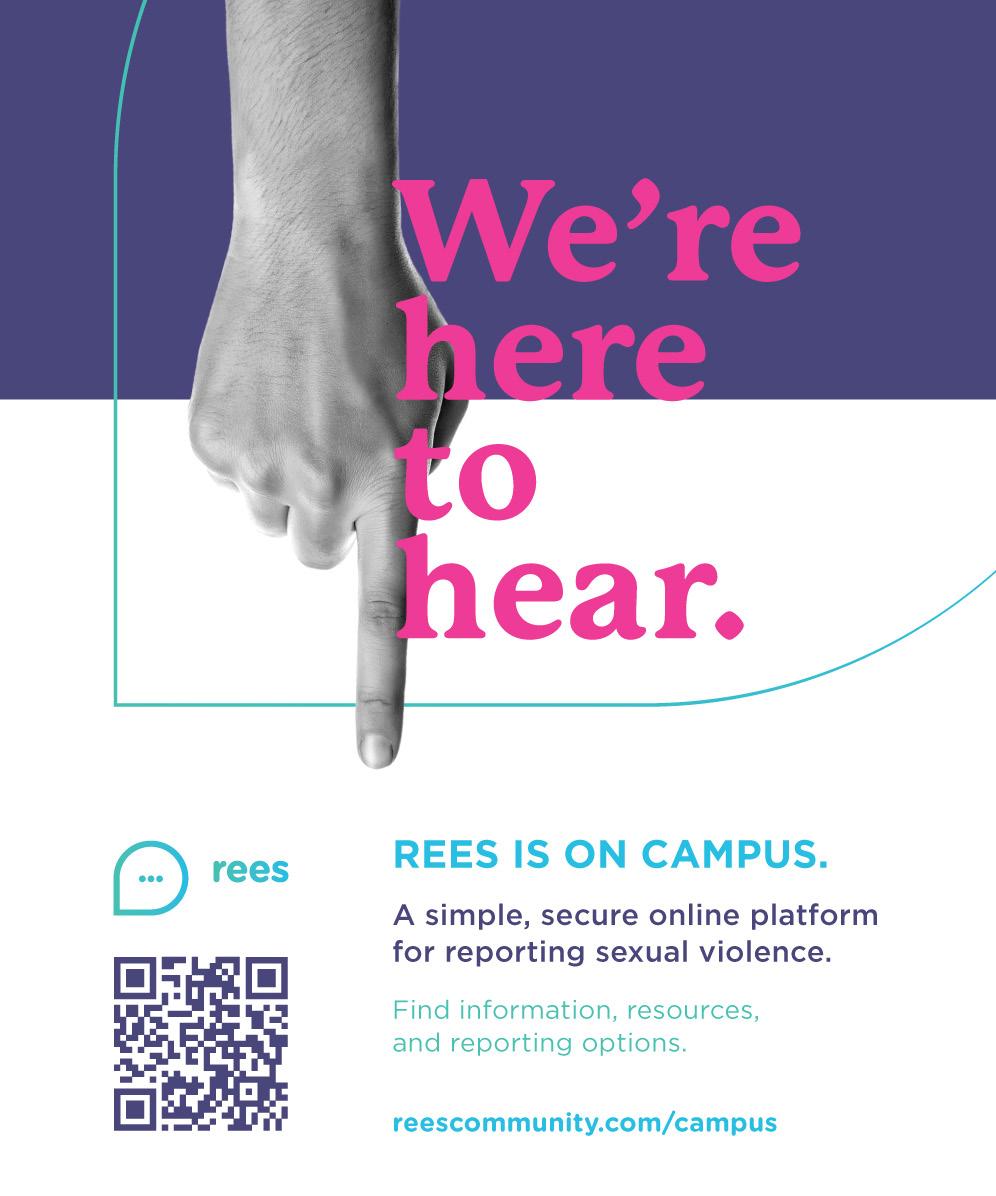

‘til next time...
